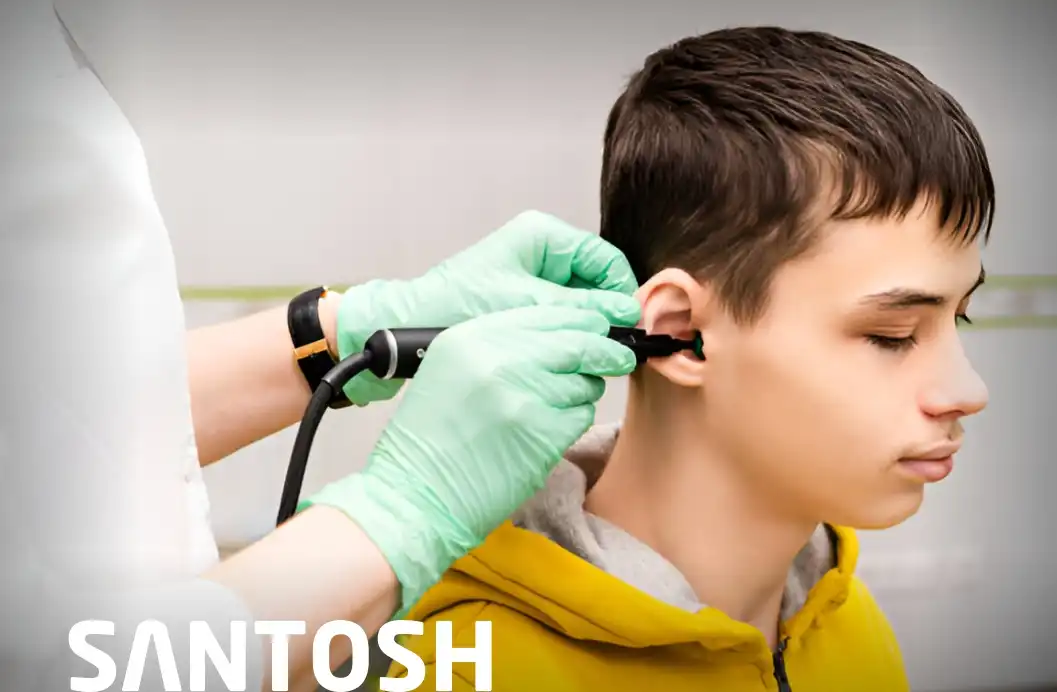Overview
The purpose of postgraduate (PG) education is multifaceted, aiming to produce specialized professionals capable of delivering high-quality healthcare services while advancing scientific knowledge through research and training. In the field of Otorhinolaryngology (ENT), the purpose of a Master of Surgery (MS) program is to establish standardized teaching practices at the postgraduate level across the country. This standardization not only benefits the training of future ENT surgeons but also contributes to uniformity in postgraduate teaching, ensuring the development of competent professionals with appropriate expertise in the field.
To achieve the defined outcomes of the PG education in ENT, a document has been created with the intention of providing guidelines to both teachers and learners. This document has been collaboratively prepared by subject-content specialists, who possess expertise in the relevant areas. The Reconciliation Board of the Academic Committee has taken the responsibility to maintain uniformity in the document, ensuring that the purpose and content are not compromised. Although some compromises in the purity of syntax have been made, the overall objective of preserving the document's purpose and content remains intact.
In order to guide the teaching and learning process effectively, the document outlines various domains of learning under the heading of "competencies." These competencies serve as key areas that students should focus on to acquire the necessary knowledge and skills in ENT. By providing illustrative guidelines and defining the expected outcomes, this document serves as a roadmap for both teachers and learners, facilitating a structured approach to education and assessment.
In summary, the purpose of PG education, specifically in the field of MS ENT, is to create specialized healthcare professionals who can deliver high-quality care and contribute to scientific advancements through research and training. The document discussed here plays a crucial role in achieving this purpose by providing comprehensive guidelines and competencies for teachers and learners, aiming to ensure uniformity in teaching practices and the development of competent ENT surgeons.
Click here if you want to know about course fees.
Objectives:
At the end of MS course in ENT, the student will be able to:
- To provide advanced theoretical and practical knowledge in the field of Otorhinolaryngology (ENT)
- To develop expertise in diagnosing and managing diseases and disorders related to the ear, nose, throat, and related structures
- To cultivate proficiency in performing surgical procedures specific to ENT, including head and neck surgeries
- To enhance research skills and foster a scientific approach to advance knowledge in the field of ENT
- To promote interdisciplinary collaboration and effective communication among healthcare professionals in the management of ENT conditions
- To instill professionalism, ethical values, and a patient-centered approach in the practice of ENT medicine
- To prepare students for further specialization, academic pursuits, and leadership roles in the field of Otorhinolaryngology
Curriculum
Assessment:
- Paper I: Basic Sciences related Otolaryngology
- Paper II: Principles and Practices of Otolaryngology
- Paper III: Recent advances in Otolaryngology and Head Neck surgery
- Paper IV: General Surgical Principles and Head-Neck Surgery
Clinical / Practical and viva voce Examination:
The purpose of conducting clinical examinations is to evaluate the knowledge, skills, attitude, and competence of postgraduate students in order to determine their readiness for independent work as specialists or teachers. As part of this examination, postgraduate students are required to assess a minimum of one long case and two short cases, which serve as indicators of their abilities.
The oral examination aims to thoroughly assess the postgraduate student's understanding and proficiency in the subject matter, including knowledge of investigative procedures, therapeutic techniques, and other aspects relevant to the specialty. This examination is designed to cover a comprehensive range of topics within the field.
Assessment methods may also include the utilization of Objective Structured Clinical Examination (OSCE), which provides a structured and standardized approach to evaluating the student's clinical skills and abilities.
The oral/viva-voce examination is intended to evaluate the student's knowledge in areas such as X-rays, instrumentation, and operative procedures. Additionally, significant consideration should be given to the student's logbook records and their day-to-day performance and observations during their training period. These factors contribute to a holistic assessment of the student's overall capabilities.
Teaching & Learning Methods:
Teaching methodology:
Didactic lectures are of least importance; small group discussion such as seminars, journal clubs, symposia, reviews and guest lectures should get priority for theoretical knowledge. Bedside teaching, grand rounds, structured interactive group discussions and clinical demonstrations should be the hallmark of clinical/practical learning with appropriate emphasis on e-learning. Student should have hand-on training in performing various procedures and ability to interpret various tests/investigations. Exposure to newer specialized diagnostic/therapeutic procedures concerning her/his subject should be given. Self-learning tools like assignments and case-based learning may be promoted. Exposure to newer specialized diagnostic/therapeutic procedures concerning ENT should be given.
- Rotations:
- A major portion of posting should be in ENT Department. It should include in-patients, out-patients, ICU, trauma, emergency room, specialty clinics including Vertigo Clinic, Rhinology Clinic, Otology Clinic, Cancer Clinic, Cadaveric dissection Lab, Audiology and speech therapy
- Inter-unit rotation in the department should be done for a period of up to one year
- Rotation in appropriate related subspecialties for a total period not exceeding 06 months
- Clinical meetings: There should be intra- and inter- departmental meetings for discussing the uncommon/interesting cases involving multiple departments
- Log book: Each student must be asked to present a specified number of cases for clinical discussion, perform procedures/tests/operations/present seminars/review articles from various journals in inter-unit/interdepartmental teaching sessions. They should be entered in a Log Book. The Log books shall be checked and assessed periodically by the faculty members imparting the training.
- Thesis writing and research: Thesis writing is compulsory.
- The postgraduate students shall be required to participate in the teaching and training programme of postgraduate students and interns
- A postgraduate student of a postgraduate degree course in broad specialities/super specialities would be required to present one poster presentation, to read one paper at 11 a national/state conference and to present one research paper which should be published/accepted for publication/sent for publication during the period of his postgraduate studies so as to make him eligible to appear at the postgraduate degree examination
- The student should know the basic concepts of research methodology, plan a research project, be able to retrieve information from the library. The student should have a basic knowledge of statistics
- Department should encourage e-learning activities
Team

Dr. Tarun Malhotra
Professor & HOD

Dr. Sushil Gaur
Professor

Dr. Abhay Kumar Singh
Associate Professor

Dr. Vineet Gupta
Assistant Professor

Dr. Raina Rathore
Assistant Professor

Dr. Shruti Tandon
Assistant Professor
Career Prospective
After completing an MS ENT course, postgraduates can pursue a variety of career opportunities in the field of Otorhinolaryngology. Some of the potential career prospects include:
- ENT Surgeon: Post Graduates can work as ENT surgeons in hospitals, clinics, or private practice, specializing in diagnosing and treating conditions related to the ear, nose, and throat. They may perform surgeries, such as tonsillectomies, adenoidectomies, sinus surgeries, or cochlear implantation.
- Academician/Researcher: MS ENT postgraduates can choose to pursue an academic or research career. They can work in universities, medical colleges, or research institutions, conducting research, publishing scientific papers, and contributing to advancements in the field of ENT.
- Consultant: Many MS ENT postgraduates establish their own ENT clinics and provide specialized consultation services to patients. They can offer expert advice, diagnosis, and treatment options for various ENT conditions.
- Hospital or Clinical Administrator: With their specialized knowledge and skills, they can work in administrative positions in hospitals, healthcare organizations, or clinics. They can oversee ENT departments, manage resources, and ensure the delivery of quality care.
- Fellowships and Subspecialties: After MS ENT Programme, they can pursue further specialization by opting for fellowship programs in areas such as head and neck surgery, otology, rhinology, laryngology, or pediatric otolaryngology. These subspecialties allow for advanced expertise and career opportunities in specific areas of ENT.
- Global Opportunities: MS ENT Postgraduates may explore international job opportunities, either by working in renowned medical institutions abroad or by participating in medical missions and humanitarian projects focused on providing ENT care to underserved communities.
- ENT Medical Officer: They can work as medical officers in government healthcare facilities, providing primary care services, diagnosing common ENT conditions, and referring patients for specialized treatment when necessary.
Overall, the career prospects for MS ENT postgraduates are diverse, offering opportunities for clinical practice, research, teaching, administration, and further specialization. The demand for ENT specialists remains high, ensuring a promising and rewarding career path in the field of Otorhinolaryngology.
